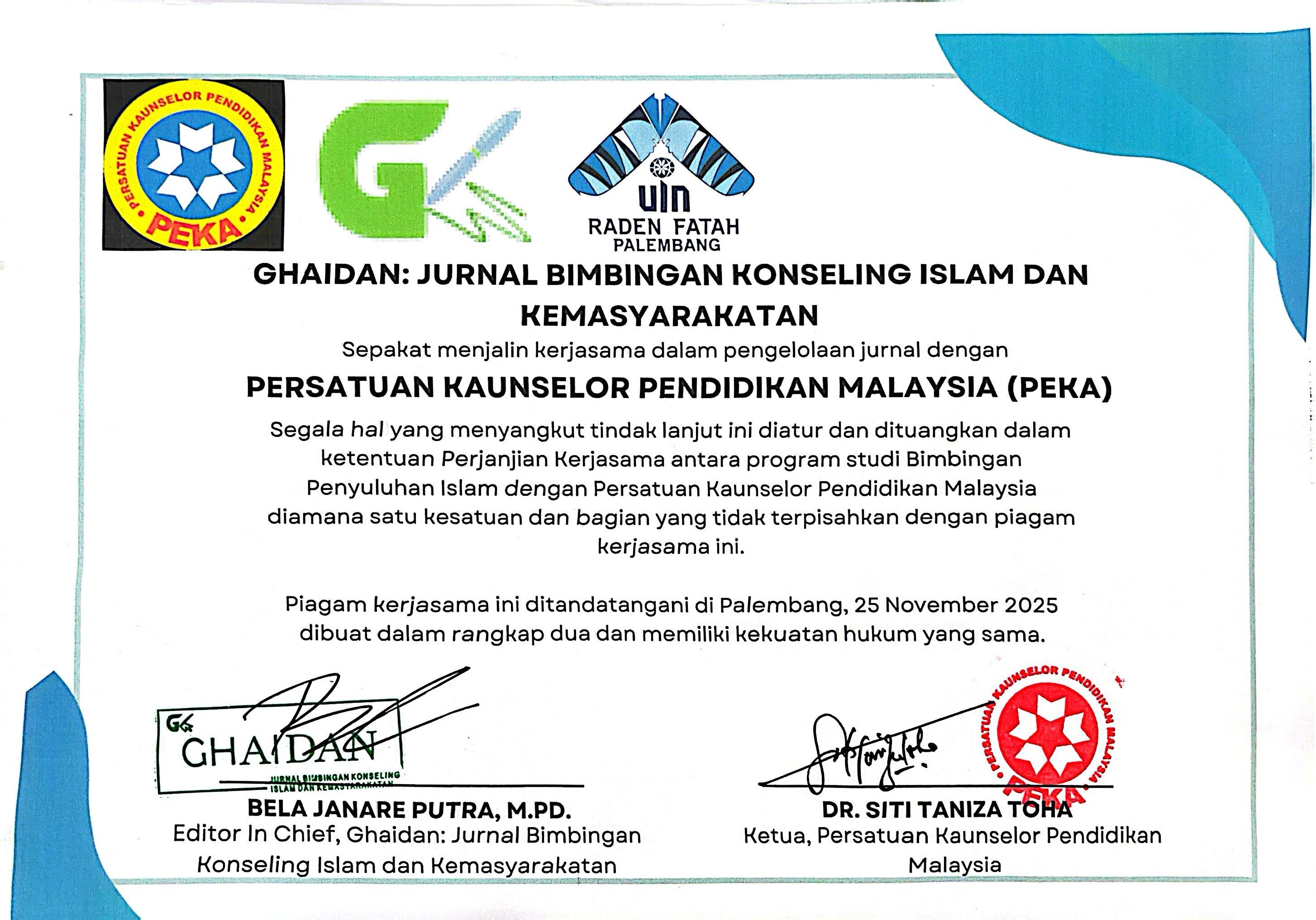Student Support: The Role of Technology in Educational Counseling
DOI:
https://doi.org/10.19109/4005bs24Abstract
The study explores the relationship between career commitment, perseverance, self-improvement, and subjective career success among students in Muslim-majority countries. Recognizing the influence of cultural and societal expectations on career choices, this study aims to highlight the importance of fostering strong career commitment among students. Research Background Cultural contexts often shape students' career aspirations, requiring understanding the factors that enhance their career development. A quantitative approach was utilized, employing surveys to collect data from 300 students across various educational institutions. The survey instrument included validated scales measuring career commitment, perseverance, self-improvement, and subjective career success. The validity of the instruments was confirmed through expert reviews and factor analysis, while reliability was assessed using Cronbach's alpha, yielding coefficients above 0.80 for all constructs. The findings suggest that a strong commitment to a career positively influences perseverance and the perception of career success. Students who demonstrate a higher level of commitment report greater resilience and adaptability in the face of career challenges. This study underscores the critical role of educational institutions and counseling frameworks in promoting student career commitment and resilience. By prioritizing these attributes, academic programs can better equip students to navigate their career paths successfully.
References
Altarawneh, A. M., & Alomoush, R. A. (2023). The reality of E-counseling services in the light of Digital learning from the point of View of Teachers in Jordan. Education and Information Technologies, 27(9), 12773–12792. DOI: https://doi.org/10.1007/s10639-022-11102-8.
Ayers, J., Schmidt, W., Ross, M. W., Bugbee, T. W., & Knight, J. (2023). A New Computer Application for Innovation and Evaluation in Counseling. Journal of Counseling Psychology. DOI: https://doi.org/10.32698/01241.
Barnett, J.E. (2005). Online counseling: A comprehensive guide to telehealth practices. Journal of Counseling & Development, 83 (3), 289-295. https://doi.org/10.1002/j.1556-6676.2005.tb00311.x
Broglia, E., Millings, A., & Barkham, M. (2019). Counseling With Guided Use of a Mobile Well-Being App for Students Experiencing Anxiety or Depression: Clinical Outcomes of a Feasibility Trial Embedded in a Student Counseling Service. JMIR Mhealth and Uhealth, 7(8), e14318. DOI: https://doi.org/10.2196/14318.
Çela, A., Aljazaeri, K., & Shakir, M. (2025). Gamification in educational counseling: Increasing engagement and effectiveness. Educational Technology Research and Development, 73(2), 123-140. https://doi.org/10.1007/s11423-024-10052-4
Cohen, A.J., Lattie, E.G., & Mohr, D.C. (2023). Mobile health apps for mental health: A systematic review. Psychological Services, 20(1), 34-45. https://doi.org/10.1037/ser0000523
Dores, A. R., & Ferreira, J.P. (2020). The impact of digital technology on counseling during COVID-19. International Journal of Mental Health, 49(3), 233-241. https://doi.org/10.1080/00207411.2020.1788704
Dores, A. R., Geraldo, A., Carvalho, I. P., & Barbosa, F. (2020). The use of new digital information and communication technologies in psychological counseling during the COVID-19 pandemic. International Journal of Environmental Research and Public Health, 17(20), 7663. DOI: https://doi.org/10.3390/ijerph17207663.
Fahyuni, E. F., Taurusta, C., Hariastuti, R. T., & Arifin, M. B. U. B. (2022). Improving students’ learning strategy through mobile counselling online application. Journal of Educational and Social Research, 12(5), 185. DOI: https://doi.org/10.36941/jesr-2022-0133.
Hidayat, D. R., Kustandi, C., & Prabowo, A. S. (2022). Developing mobile-based career counselling applications: A tool for assisting high school students on career decisions making. International Journal on Advanced Science, Engineering and Information Technology, 12(3), 1182. DOI: https://doi.org/10.18517/ijaseit.12.3.15255.
Lattie, E.G., Lipson, S.K., & Mohr, D.C. (2019). The role of technology in mental health care: A literature review. Psychiatric Services, 70(5), 391-396. https://doi.org/10.1176/appi.ps.201800399
Majjate, H., Bellarhmouch, Y., Jeghal, A., Yahyaouy, A., Tairi, H., & Zidani, K. A. (2024). AI-Powered Academic Guidance and Counseling System Based on Student Profile and Interests. Applied Systems and Innovations, 7(1), 6. DOI: https://doi.org/10.3390/asi7010006.
Mallen, M. J., Hari, S.C., & Green, K. (2005). Online counseling: Narrative and meta-analysis. Journal of Counseling Psychology, 52 (3), 331-338. https://doi.org/10.1037/0022-0167.52.3.331
Muhammad, A. (2024). Exploring the integration of technology in educational counseling: A comprehensive review. Journal of Educational Psychology, 116(1), 25-40. https://doi.org/10.1037/edu0000421
Mullen, P. R., Griffith, C., Greene, J. H., & Lambie, G. W. (2023). Social Media and Professional School Counselors: Ethical and Legal Considerations. Journal of Technology in Counseling. Google scholar.
Pincus, R., Hannor-Walker, T., Wright, L., & Justice, J. (2020). COVID-19’s Effect on Students: How School Counselors Rise to the Rescue. NASSP Bulletin, 104(4), 241–256. DOI: https://doi.org/10.1177/0192636520975866.
Pordelan, N., & Hosseinian, S. (2021). Online career counseling success: The role of hardiness and psychological capital. International Journal for Educational and Vocational Guidance, 21(3), 531–549. DOI: [https://doi.org/10.1007/s10775-020-09452-1].
Puhy, P.A., Tani, J., & Yamada, S. (2021). mHealth technology in school counseling: Increasing engagement and satisfaction. Journal of School Health, 91(6), 489-497. https://doi.org/10.1111/josh.13019
Suryawati, R., & Wahyu, F. (2024). The effectiveness of online counseling platforms: A meta-analysis. Quarterly Counseling Psychology, 37 (2), 112-128. https://doi.org/10.1080/09515070.2023.2164743
Woo, BKP, & Chang, D. (2020). Technology-assisted interventions in counselling: A systematic review. Quarterly Counseling Psychology, 33 (3), 271-285. https://doi.org/10.1080/09515070.2019.1582042
Downloads
Published
Issue
Section
License
Copyright (c) 2025 Aya Ragab, Ahmed Alshokhada, Hani Febriyanti, Romani Romani Life, Sabreen Mansour

This work is licensed under a Creative Commons Attribution-ShareAlike 4.0 International License.





